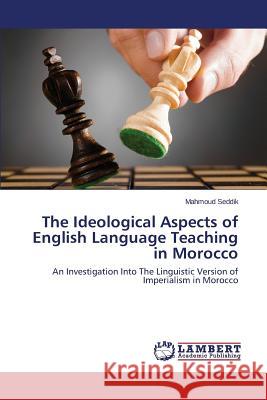The Ideological Aspects of English Language Teaching in Morocco » książka
The Ideological Aspects of English Language Teaching in Morocco
ISBN-13: 9783848431335 / Angielski / Miękka / 2014 / 100 str.
This book is motivated by an insistent curiosity to accurately understand the assertion that English Language Teaching is not something of a closed box concerned only with technical matters and didactic routines; rather the operation is fraught with socio-political and economic ideologies. Actually, ELT is perceived as a complex machinery that normalizes and propagates certain ELT principles as "taken for granted" assumptions that would keep the English- speaking countries the main monopolizers of resources and information, the legal owners of knowledge and the inter-continental exporters of innovation and expertise. In a neo-colonial era, it seems that ELT has substituted military machinery to act as a socio-political tool at the West's disposal to maintain their hegemony, assert their supremacy and exert power over their former colonies in a bid to realize their socio-political and economic interests. To investigate this very controversial assertion, the book focuses exclusively on some popular foreign and local English Language Centers (ELC) through a critical discourse analysis of slogans, texts and pictorial prompts in their websites to provide answers to the book's hypothesis
This book is motivated by an insistent curiosity to accurately understand the assertion that English Language Teaching is not something of a closed box concerned only with technical matters and didactic routines; rather the operation is fraught with socio-political and economic ideologies. Actually, ELT is perceived as a complex machinery that normalizes and propagates certain ELT principles as "taken for granted" assumptions that would keep the English- speaking countries the main monopolizers of resources and information, the legal owners of knowledge and the inter-continental exporters of innovation and expertise. In a neo-colonial era, it seems that ELT has substituted military machinery to act as a socio-political tool at the Wests disposal to maintain their hegemony, assert their supremacy and exert power over their former colonies in a bid to realize their socio-political and economic interests. To investigate this very controversial assertion, the book focuses exclusively on some popular foreign and local English Language Centers (ELC) through a critical discourse analysis of slogans, texts and pictorial prompts in their websites to provide answers to the books hypothesis











